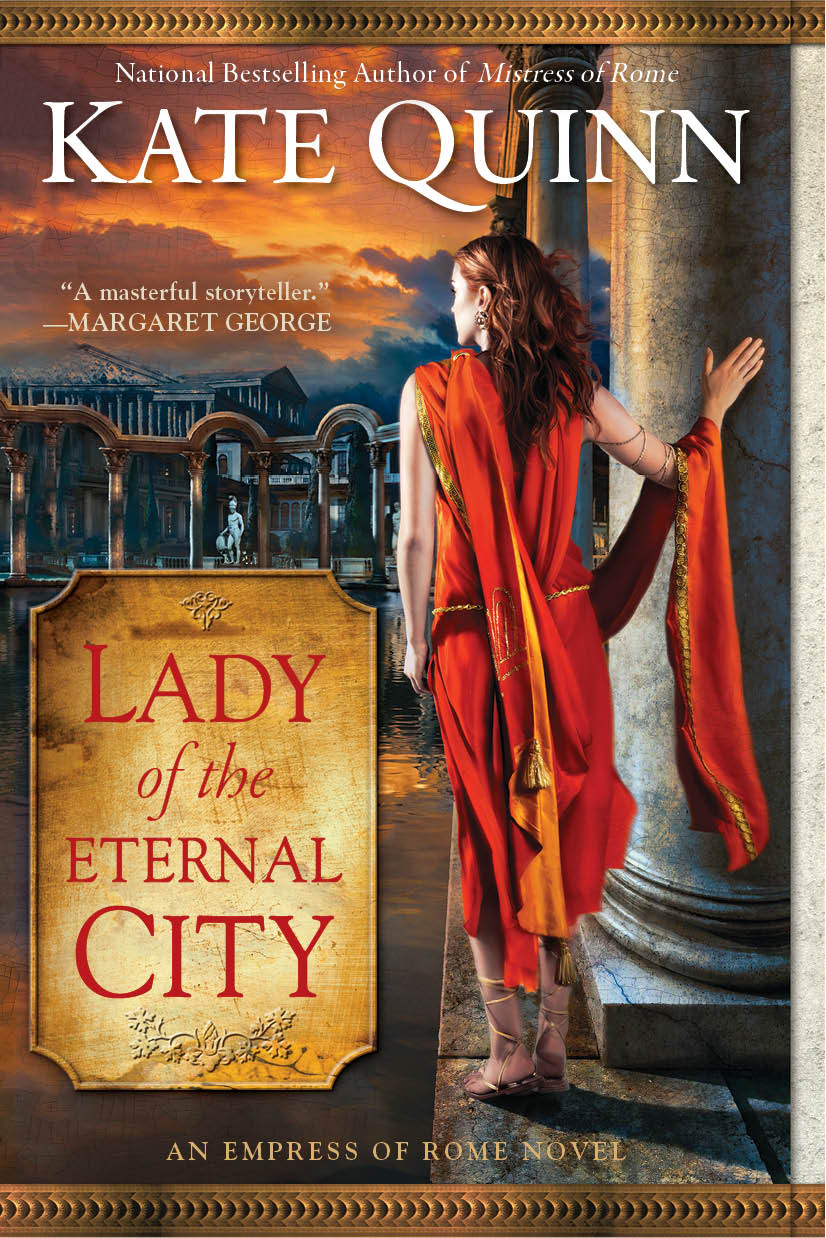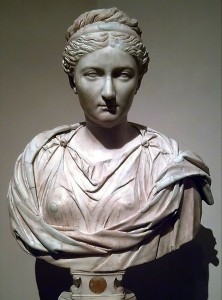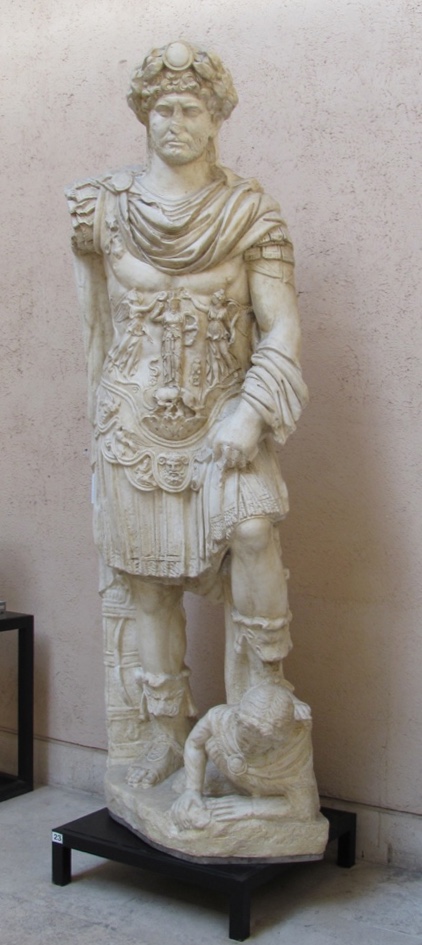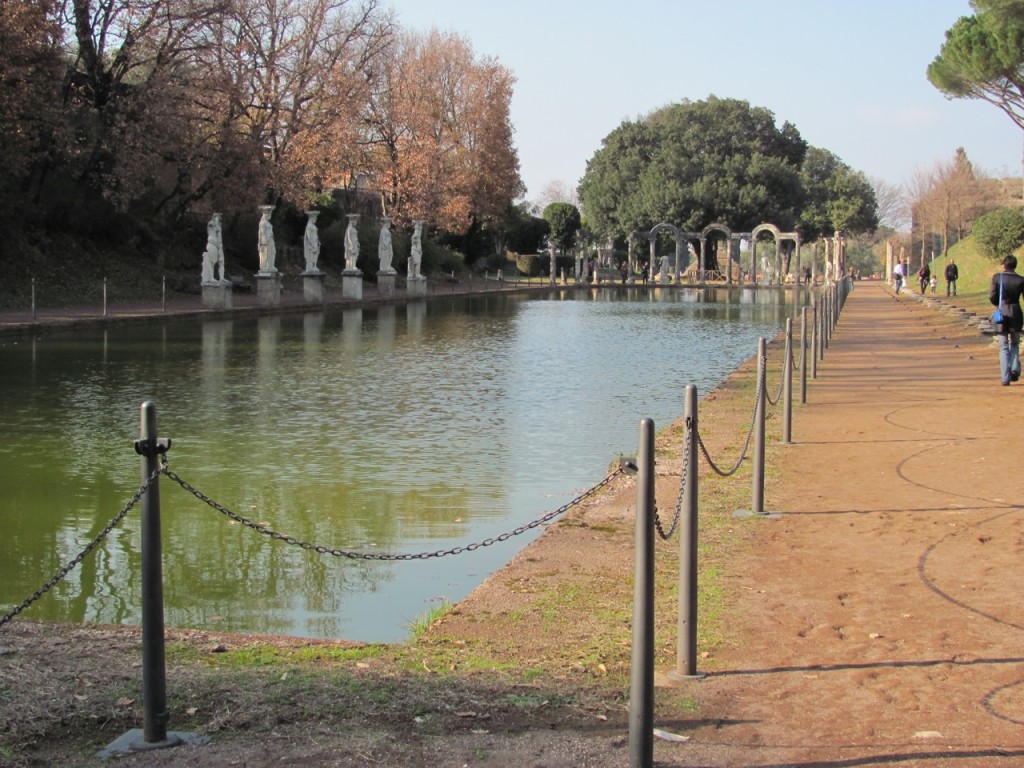 Today, I’m delighted to welcome historical novelist Kate Quinn. A native of southern California, Kate graduated from Boston University with bachelor’s and master’s degrees in Classical Voice. A lifelong history buff, she has written four novels in the Empress of Rome Saga and two set in the Italian Renaissance about the early years of the infamous Borgia clan. Readers may also remember Kate as one of the authors of A Day of Fire – see the interview with Ben Kane.
Today, I’m delighted to welcome historical novelist Kate Quinn. A native of southern California, Kate graduated from Boston University with bachelor’s and master’s degrees in Classical Voice. A lifelong history buff, she has written four novels in the Empress of Rome Saga and two set in the Italian Renaissance about the early years of the infamous Borgia clan. Readers may also remember Kate as one of the authors of A Day of Fire – see the interview with Ben Kane.
Kate has succumbed to the blogging bug, and keeps a blog filled with trivia, pet peeves, and interesting facts about historical fiction. She and her husband live in Maryland with a small black dog named Caesar, and her interests include opera, action movies, cooking, and the Boston Red Sox.
Lovely to see you here, Kate. I really enjoyed Lady of the Eternal City about Vibia Sabina, Hadrian’s wife – thank you for the advance copy.
You’re welcome!
Hadrian is known to many people for Hadrian’s Wall in northern Britain, but he was a good governor, administrative reformer, proven military commander and patron of arts and architecture. But despite his love of Greece and Greek culture, he was very much a Roman of his time in his actions, i.e. prone to brutality and autocratic behaviour.
Roman women are often left out of the historical records; when they are included on occasion as Livia was, it’s exceptional. How do you approach ‘re-making’ the character of Sabina, when there is so little recorded about her?
Empress Sabina is a cipher—we have very few surviving concrete facts about her life, which I love. If it isn’t known, I’m free to make it up! What found the most interesting about her was her relationship with her mercurial husband, and with his beautiful male lover Antinous. There is historical evidence that Sabina and Hadrian disliked each other—but why did he still take her with him on his travels, and why did he never divorce her? And when he fell in love with Antinous, Sabina as the humiliated wife had good cause to feel shamed or angry, but she apparently gave the whole situation her seal of approval. Definitely some interesting marital dynamics there!
What was the most interesting, or shocking thing you discovered when researching this story?
Hadrian’s personality was the most fascinating—and frustrating—thing I have ever found in my research. He’s an extremely mercurial, contradictory character; almost every personality trait he exhibits is bracketed by its exact opposite. He was a spiritual cynic; a superstitious man of science; a lazy workaholic; a humble bragger; a blood-thirsty animal lover. He was extremely hard to pin down as a character, and I still have no idea if my version is anywhere near the truth.
(I find this statue in the Museum of Roman Civilisation – made after one of Hadrian’s conquests – with its martial pose, yet the un-Roman moustache and curling hair a perfect physical example of this contradiction.)
How do you feel about using setting and backstory in your work, especially for readers unfamiliar with Roman history?
There was both a lot of setting and a lot of backstory in this book. For one, Hadrian was an inveterate traveler and I had 10+ provinces to describe and make distinct. For the other, this book is a sequel to Empress of the Seven Hills where Hadrian, his future wife, and his future bodyguard first begin their dance of fascination, love, hatred, and secrets. 10 provinces and 20 years of complicated backstory is probably the reason this book is the longest I’ve written to date—but I loved playing with both, because I think it made the world inside the book richer. Ancient Rome sometimes gets boiled down to marble columns, gladiatorial games, and roast dormice at banquets—but showing readers how wide the range of experience was through the provinces and how the various social strata interacted with historical events makes for a more complete picture of a past era.
Do you think fiction does anything to help us understand the past, or is it purely entertainment?
Good historical fiction helps get rid of the veil over the past—the veil that keeps us from realizing that people of bygone eras were much like us. Even if the trappings of their lives are strange to modern eyes, people of ancient Rome or Renaissance France or WWI Britain still ate, drank, loved, laughed, hated, danced, and had all the same human feelings we do today—and good HF is just about the best way to make that real.
So what’s the new book Lady of the Eternal City about?
The fourth volume in the Empress of Rome series, published 3 March 2015, a new tale of the politics, power, and passion that defined ancient Rome.
 Elegant, secretive Sabina may be Empress of Rome, but she still stands poised on a knife’s edge. She must keep the peace between two deadly enemies: her husband Hadrian, Rome’s brilliant and sinister Emperor; and battered warrior Vix, who is her first love. But Sabina is guardian of a deadly secret: Vix’s beautiful son Antinous has become the Emperor’s latest obsession.
Elegant, secretive Sabina may be Empress of Rome, but she still stands poised on a knife’s edge. She must keep the peace between two deadly enemies: her husband Hadrian, Rome’s brilliant and sinister Emperor; and battered warrior Vix, who is her first love. But Sabina is guardian of a deadly secret: Vix’s beautiful son Antinous has become the Emperor’s latest obsession.
Empress and Emperor, father and son will spin in a deadly dance of passion, betrayal, conspiracy, and war. As tragedy sends Hadrian spiraling into madness, Vix and Sabina form a last desperate pact to save the Empire. But ultimately, the fate of Rome lies with an untried girl, a spirited redhead who may just be the next Lady of the Eternal City . . .
Available in the UK at Amazon UK iTunes Nook Kobo
And my thoughts!
I knew about Hadrian, Sabina and Antinous from history, but the clever weaving of their stories with that of the fictional tough ‘barbarian’ Vix and the younger Faustina and Marcus as children enchants you. I have wandered through the remains of Hadrian’s Tivoli villa near Rome and, of course, embrace Hadrian’s Wall as part of my national heritage, but Kate Quinn breathes life into these places so you are gazing at the star sky at the northern edge of the world and feel the heartbreak of duty and love tearing you apart on the River Nile, in Judea, in Rome. The author uses different points of view with care, giving readers insight in to the minds and emotions of each character without burdening them with unnecessary detail nor losing them. Highly recommended.
More about Kate:
Website and blog Facebook Goodreads Twitter
Alison Morton is the author of Roma Nova thrillers, INCEPTIO, PERFIDITAS and SUCCESSIO. The fourth book, AURELIA, is due out in May 2015.
Find out more about Roma Nova, its origins, stories and heroines…
















Leave a Reply